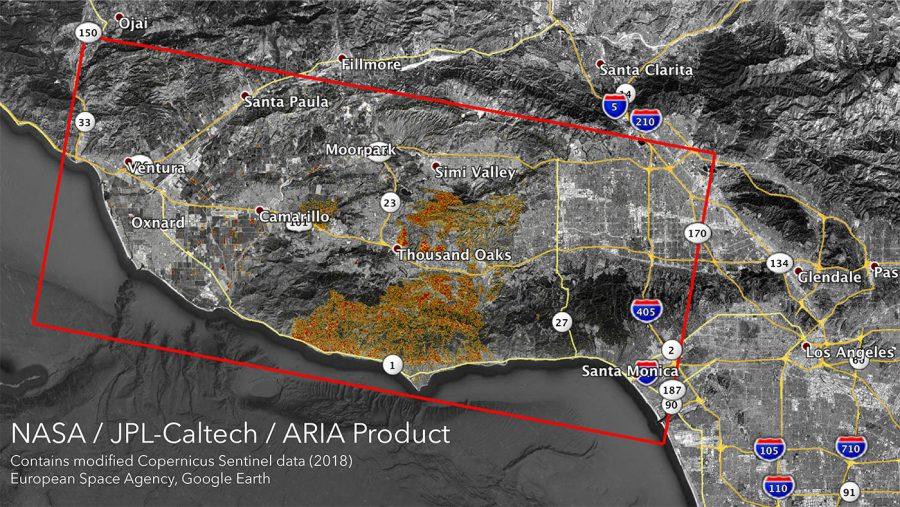Despite being 3,000 miles away from home, Tisch senior Sami Sneider can still feel the heat of the recent fires that have engulfed California.
“I’m from Venice, so you can see the fire from my house,” Sneider said, “Luckily, I haven’t [had] any direct devastation from the fire in terms of my home or family’s home.”
These wildfires have been deemed the deadliest wildfires in California’s history and have resulted in at least 56 deaths and massive losses in property. For Sneider, it’s a big wake up call that these disasters can harm the places she loves.
“Malibu is actually my favorite place in L.A.,” Sneider said. “I grew up hiking there and recently, maybe about a year ago, I started surfing there. That’s exactly what I was going home to, but now, it’s in flames.”
Even though the fires have not directly impacted Sneider, she has watched her close friends from Malibu grapple with the fires through her social media feeds.
“I have a feed of a bunch of people who I have direct contact with who are posting the aftermath or the actual fire itself,” Sneider said. “That’s the media I’m getting so it definitely feels more close to home.”
Similar to Sneider, Tisch first-year Maddy Higdon has seen her family take precautions over air quality in her hometown.
“Learning that my mom has been coughing enough to the point she bought an air filter for the house was an impactful moment from the past two weeks,” Higdon said.
In light of these fires, many have started to ask why disasters like these are so frequent. Even though the federal government has officially recognized the fires as a major disaster, some feel as if the political discussion surrounding the fires detracts from the severity of the issue.
“I really wish I knew and it’s something that I was asking myself all morning,” Sneider said. “We kind of take for granted daily life when we don’t see natural disasters happening.”
At NYU, The Office of Student Affairs has reached out to students in areas that have been severely impacted by the fires to provide aid and counseling to those in need. In a letter to the 92 students who reside in these areas, Vice President of Student Affairs Marc Wais offered his condolences to those affected.
“I write to you, and other students from the areas in California most severely impacted by the current wildfires, to let you know the NYU community is thinking of you, and all those affected by these events and resulting evacuations,” Wais wrote.
Higdon, whose smoke-filled hometown caused local officials to issue air quality warnings in her neighborhood, said such outreach is crucial in this situation.
“People should contribute in any way they can — donate, volunteer or even just spread awareness,” Higdon said.
For Sneider, the wildfires are a reminder of how quickly things change and how important it is to take care of the places that are closest to our hearts.
“We need to understand the correlation between our behavior and inevitable natural disasters,” Sneider said. “When we begin to understand our correlation and how we accelerate problems, that’s the only way we can change anything.”
Email Mansee Khurana at [email protected].


























































































































































